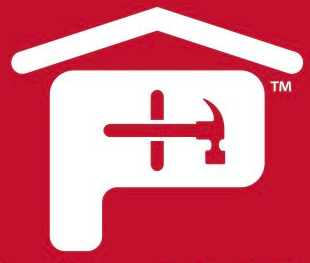Continuous insulation leads the way to better building energy performance.
More than any other issue—both residential and commercial—improved building energy performance has become a focus of the construction industry.
Consumers across all markets and industries have begun demanding greater corporate social responsibility in respect to the environment. Newly implemented national and local building codes, rising energy costs, and environmental concerns, have driven innovation and technology adoption to produce more energy-efficient building materials.
For its part, the industry has made great strides in the areas of less wasteful construction. Design methodologies such as Passive House Design and NetZero have gained momentum, and will continue to play an important role in the future of construction. Green construction certification standards such as LEED, provide building owners incentive to publicly recognize and rate their facility's environmental footprint.

Atlas Wall CI Board is approved as an insulation system for a variety of types of construction, including common backup assemblies such as wood frame, steel frame, concrete, or CMU. Learn more about Atlas Wall CI »
Greater Energy Performance Lies Within the Building Walls
Leaky buildings have long been recognized as a major cause of poor energy performance. “Leaky” refers to a building with openings that allow unintended airflow. This is why most structures contain insulation between wall cavities, to stop air "leakage".
Yet another common form of leakage exists, even in the presence of the best wall cavity insulation. Those wooden studs or metal frames that sit between walls, leak large amounts of energy. Because framing material most often contacts both the inside and outside of wall surfaces, they facilitate energy transfer, also known as thermal bridging.
Remember that traditional insulation only insulates between framing space. The studs within the frame act as a bridge, allowing the flow of energy between the outside and inside environments of the structure. On average, studs constitute 25% of wall surface. Estimates indicate this causes 17% of the energy loss seen in the average wood-framed home. For steel-framed buildings, it's estimated that thermal bridging causes a 50% or more reduction in a wall's R-value.
In order to meet more stringent energy demands, better solutions will need to be developed.
Continuous Insulation Provides Tomorrow's Energy Performance Today
The industry doesn't need to wait for great new innovations on the horizon five or ten years down the road. Continuous insulation for walls delivers future energy requirements today.
Continuous insulation completely covers the structure's frame, thereby blocking the thermal bridge. Continuous insulation can be utilized on both internal and external walls. It can be used in conjunction with traditional wall insulation or by itself. It can also be used in conjunction with multiple wall assemblies.
The highest-performing continuous insulation comes in the form of polyiso boards. Polyiso provides an extremely high R-value per inch. When continuous insulation boards get sealed with tape, it also prevents air "leaks", further bolstering building energy performance. As a result, buildings become less expensive to maintain operationally.
Continuous Insulation Brings Benefits Beyond Energy Performance
The benefits of continuous insulation go beyond just energy conservation.
- Continuous insulation resists moisture very well. Its inherent water resistance helps to prevent growth of mold and mildew in between walls.
- Polyiso continuous insulation possesses significant dimensional stability and meets ASTM C1289 Standard Specification for Faced Polyisocyanurate Thermal Insulation Board.
- Polyiso continuous insulation can also simplify installation in certain situations.
- Polyiso has the highest R-value per inch when compared to other types of insulation.
- Polyiso is fire test compliant, forming a char layer that stays in place during ASTM 84 testing.
Atlas Roofing Can Help You Construct the Wall of Tomorrow Today
Energy-efficient buildings have become the norm rather than the exception for new construction. Atlas roofing continues to advance building materials to meet these and future needs. Designers and builders can choose from a complete selection of polyiso wall continuous insulation products for both residential and commercial projects. Atlas understands that continuous insulation represents the elemental component of an energy efficient wall system. Atlas customers appreciate the company's commitment to the construction industry and more energy efficient building practices. Atlas also provides a complete integrated suite of building products, making projects more efficient and less costly. Take a moment to review Atlas' complete line of polyiso wall insulation products. Or, speak with one of their on-staff experts about an upcoming project.



 Gear!
Gear! PRO LOGIN
PRO LOGIN